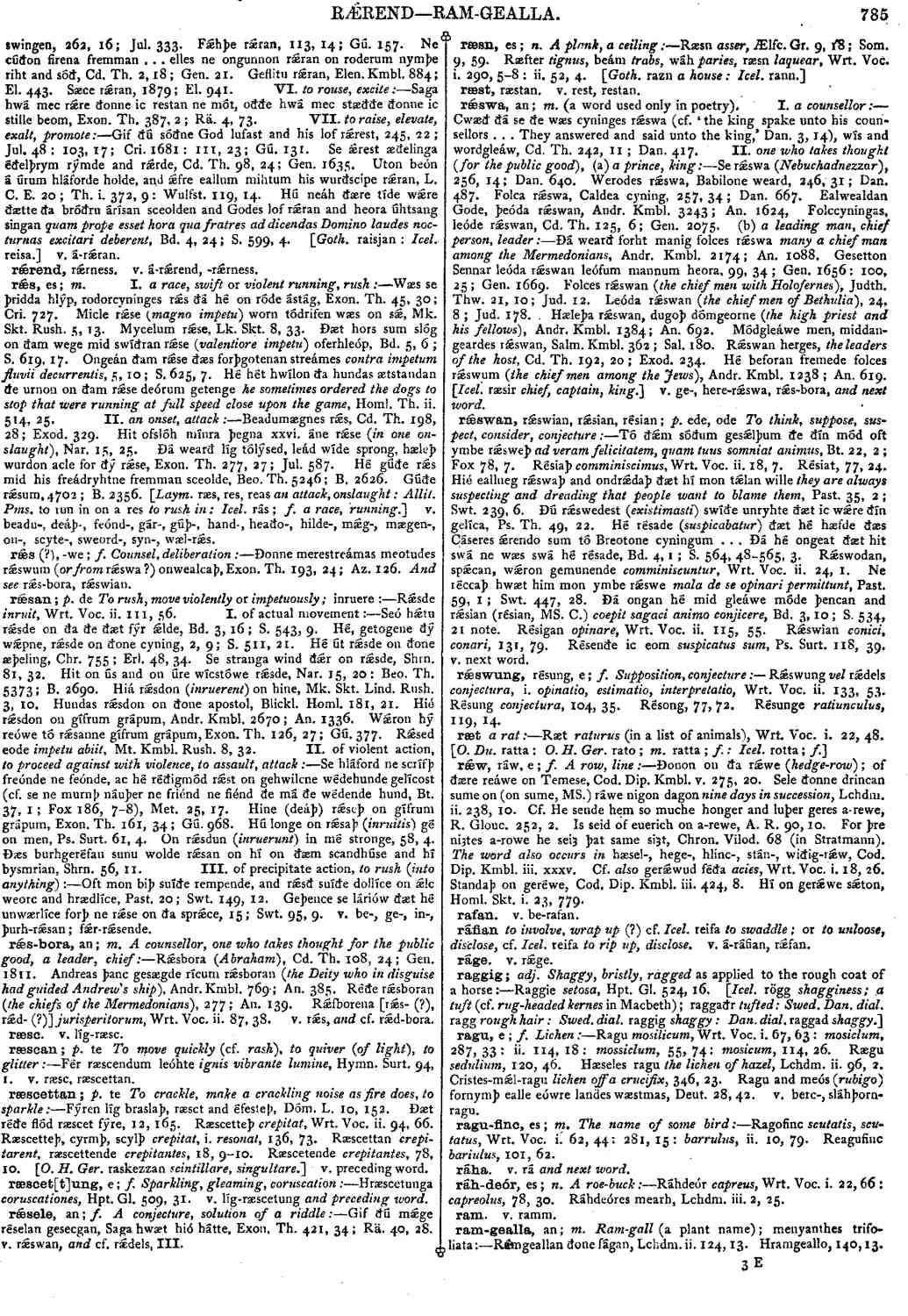rǽs
- noun [ masculine ]
-
Wæs se þridda hlýp, rodorcyninges rǽs ðá hé on róde ástág,
- Exon. Th. 45, 30; Cri. 727.
-
Micle rǽse (
magno impetu
) worn tódrifen wæs on sǽ,- Mk. Skt. Rush. 5, 13.
-
Mycelum rǽse,
- Lk. Skt. 8, 33.
-
Ðæt hors sum slóg on ðam wege mid swíðran rǽse (
valentiore impetu
) oferhleóp,- Bd. 5, 6; S. 619, 17.
-
Ongeán ðam rǽse ðæs forþgotenan streámes
contra impetum fluvii decurrentis,
- 5, 10; S. 625, 7.
-
Hé hét hwílon ða hundas ætstandan ðe urnon on ðam rǽse deórum getenge
he sometimes ordered the dogs to stop that were running at full speed close upon the game,
- Homl. Th. ii. 514, 25.
-
Beadumægnes rǽs,
- Cd. Th. 198, 28; Exod. 329.
-
Hit ofslóh mínra þegna xxvi. áne rǽse (
in one onslaught
),- Nar. 15, 25.
-
Ðá wearð líg tólýsed, leád wíde sprong, hæleþ wurdon acle for ðý rǽse,
- Exon. Th. 277, 27; Jul. 587.
-
Hé gúðe rǽs mid his freádryhtne fremman sceolde,
- Beo. Th. 5246; B. 2626.
-
Gúðe rǽsum,
- 4702; B. 2356.
Bosworth, Joseph. “rǽs.” In An Anglo-Saxon Dictionary Online, edited by Thomas Northcote Toller, Christ Sean, and Ondřej Tichy. Prague: Faculty of Arts, Charles University, 2014. https://bosworthtoller.com/25536.
Checked: 0